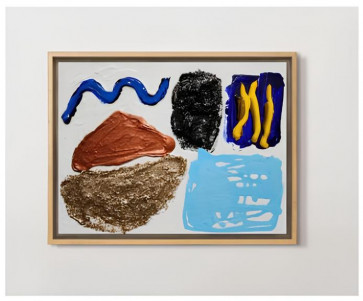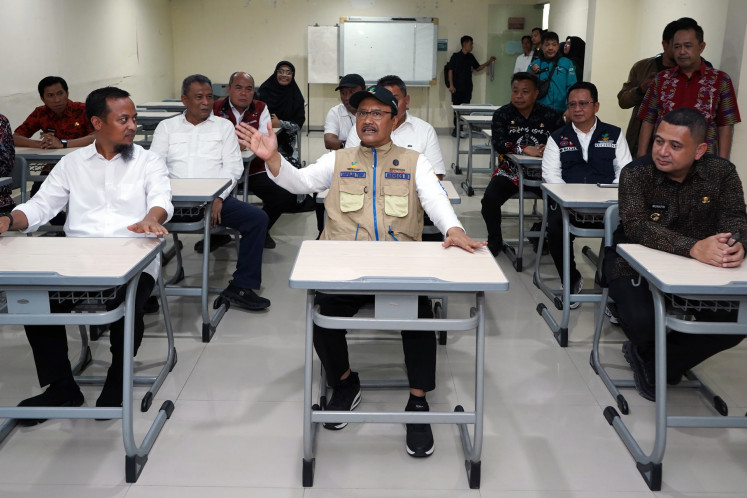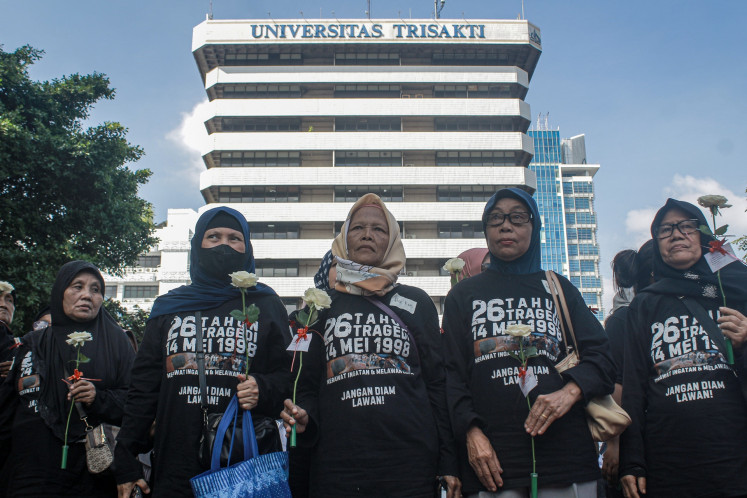The tastes of India: Spices give Indian food the edge
Culinary journey: A wide range of Indian food is on offer at the Flavors of India food festival at The Westin Jakarta held in collaboration with the Indian Embassy
Change text size
Gift Premium Articles
to Anyone

C
span class="caption">Culinary journey: A wide range of Indian food is on offer at the Flavors of India food festival at The Westin Jakarta held in collaboration with the Indian Embassy.(Courtesy of The Westin Jakarta)
Indian food, for many, is a very confusing mix of spices, but it is this magical fusion and its intoxicating aroma that makes the food so unique.
The distinct complex flavors in many Indian dishes makes it one of the most sensational cuisines in the world.
Every region in the country has its own specific and identifiable food. With six seasons, as well as geographical, religious, cultural and ethnic diversity, India’s cuisine cannot be defined in simple terms. In fact, the taste of food changes every 100 kilometers across the vast country.
The intermingling of cultures because of invasions from the Middle East and Central Asia further adds to the complexity of local cuisines.
Therefore, eating Indian food is an experience in itself. The Westin Jakarta, a part of Marriott International, in collaboration with the Indian Embassy, recently introduced the Flavours of Indian food festival at the hotel’s Seasonal Tastes all-day dining restaurant.
The idea behind the festival, which is on until March 28, is to further strengthen the aromatic and culinary binding between India and Indonesia.
To further enhance the experience for Indonesian food connoisseurs, The Westin Jakarta flew in guest chef Nandan Singh Dhami from JW Marriott, Mumbai.

“Showcasing the rich legacy of Indian cuisine and its refreshing and surprising flavors are all that I am focussed on,” said chef Dhami.
The chef is all set to weave his culinary magic by including mushroom cheese kurkure, til wale aloo, Goan fish curry, prawn masala, malai kofta and paneer tikka masala on the menu.
During the festival, chef Dhami collaborates with Iron Chef Winner Denny Boy Gunawan to roll out Indian heritage food.
Indians, typically, have three main meals a day and each food item on the plate is there for a reason. Ancient Indian religious scriptures like the Vedas and the Ayurveda texts talk in length about food and its consumption.
“Ayurveda is the science of life. Modern science also agrees to the fact that 80 percent of our structure and system is because of the food we eat and how we consume it,” said JW Marriott Mumbai’s executive chef Vishal Atreya, who has over 16 years of illustrious culinary experience.
Back then, when there was an absence of technical terms to identify the minerals that went into cooking food, Ayurveda relied on rasa (taste), namely salty, sour, sweet, bitter, astringent and pungent.
“If you have all six tastes on your plate, the meal is considered balanced,” added Atreya from Mumbai, where he works with chef Dhami.
He said Indian meals are very wholesome.

The normal composition of a regional thali (a plate of food) consists of lentils or pulses for protein, salads or raw vegetables for vitamins and minerals, roti (flat round bread made of whole wheat flour) or rice for carbohydrates, some form of yoghurt for probiotics and calcium, pickles for vitamin C, coriander or mint chutney for rare nutrients like zinc and magnesium, desi ghee for fat and jaggery for iron and glucose.
In fact, the thali happens to be the highest selling item in The Westin, according to The Westin Jakarta’s general manager Arun Kumar. “On any given day, we sell almost 30 thalis that has about eight items,” he said.
Indian diets vary tremendously both in their style of preparation and ingredients. “It is a great combination of whole grains, pulses, cooked vegetables, dairy and spices. The staple cereal varies according to region,” added Ishi Khosla, a well-known clinical nutritionist and founder of theweightmonitor.com, Whole Foods India and the Celiac Society in India.
The notion of Indian food being spicy and oily sometimes dampens health conscious food enthusiasts.
To this, chef Atreya makes a humble request to those looking to experience Indian cuisine: “Please do not come with a preconceived notion of what Indian food should be like. Come with an open mind and enjoy the intricacy of flavors that Indian food has to offer.”









